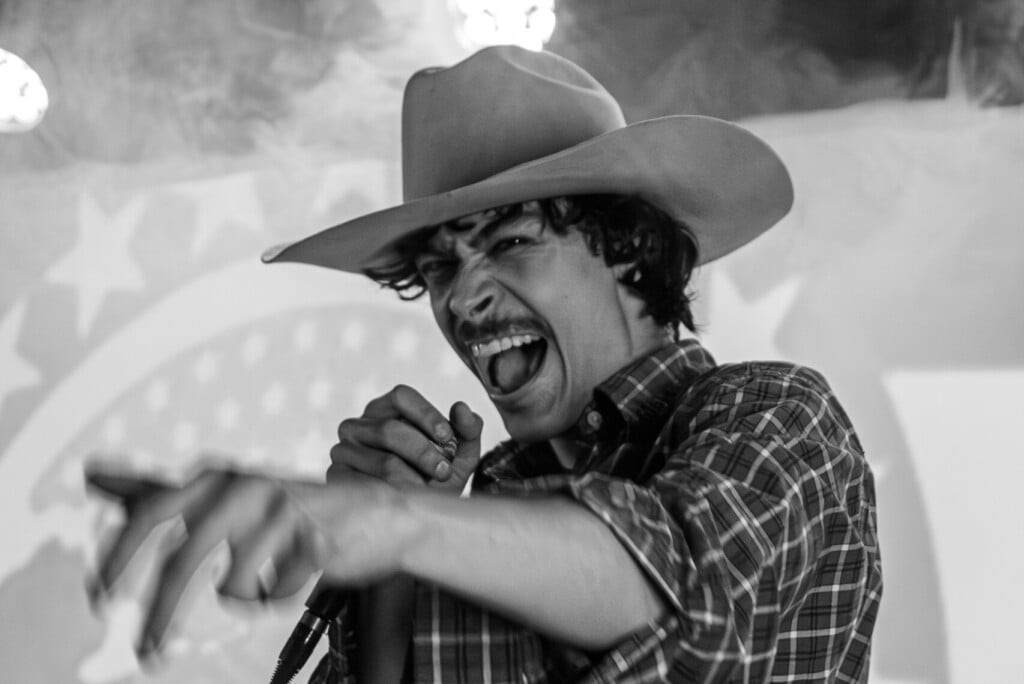Misconstrued Maestro: Remembering transgender trailblazer and iconic jazz musician Billy Tipton
Billy Tipton was a jack of all trades. A jazz musician, recording artist, booking agent, dedicated father to three, and husband. He lived an honorable life, offering his musical virtues up to the world—his service to the ears of many.
More than that, however, according to many accounts, Tipton seems to have been a very loving, compassionate, and present family member in the lives of his three children, and his past lovers.
“He was the perfect husband,” Tipton’s wife Kitty Oakes says in a 1989 interview with A Current Affair after his death.
But when Tipton passed away, none of that seemed to matter in headlines. Upon his autopsy, it was discovered that Tipton was assigned female at birth and had been living his life as a transgender man.
Tabloids and daytime talk shows quickly picked up the story and painted Tipton’s authentic and trailblazing life as one of deception. In the only published biography of Tipton, author Diane Middlebrook went as far as referring to Tipton as an “illusionist” and “actor.”
Big City Business
In 1914, Billy Tipton was born in Oklahoma City to G.W. and Reggie Tipton. After a messy divorce and custody battle, Tipton’s mother ultimately relinquished custody to Tipton’s father for a sum of $1,500. Tipton’s mother was a child bride, married at just 14, and after the divorce was finalized, she remarried weeks after.
Ultimately, his father was uninterested in raising Tipton and his younger brother, Bill. Less than two months after the divorce was finalized in January 1929, a 14-year-old Tipton and his brother boarded a train to live with their Aunt Bess Coffey—their father’s sister—in Kansas City.
Coffey was the cool aunt in the big city. At the time, Coffey lived off of 62nd Terrace in the Country Club District, and she and her husband George also owned the Mecca Hotel at 13th and Wyandotte, where they occasionally stayed along with the Tipton children. Just a block from the vaudeville theaters and jazz clubs on 12th Street, performers were long-term guests at the hotel. Among these entertainers were likely gender impersonators, now known as drag artists—a popular staple of nightlife.
It was likely in fledgling modern Kansas City that Tipton was exposed to gender identities that fell outside of a strict cisgender binary. In the height of the Jazz Age and Tom Pendergast’s reign as mayor, life in modern, wide-open Kansas City was a stark contrast from Tipton’s upbringing in Oklahoma City.
“All Tipton had to do was walk down to 12th Street to be exposed to everything that was going on in the city,” says Stuart Hinds—curator of UMKC’s Labudde Special Collections and a researcher of LGBTQ+ history in KC. “Tipton probably picked a lot of musical influences and tips just from being in the middle of it all.”
Aunt Bess fostered Tipton’s musical aptitude. Although the musician was unable to join the school band due to gender restrictions, he was able to play alto saxophone in Southwest High School’s orchestra and took piano lessons with one of the most highly regarded instructors in the area—Gertrude Concannon.
In 1932, Reggie divorced her second husband. Another custody battle and fight for financial support from G.W. ensued. Ultimately, custody was granted to Reggie. Tipton attended the fall semester of his senior year back in Oklahoma at Muskogee High School and the final semester at a boarding school.
Tip of the Iceberg
The tale about Tipton’s transition has time and again been told like this: After high school, Tipton struggled to find work as a musician in Oklahoma while identifying as female. He began dressing as a man in order to get hired and permanently kept up the ‘act.’
“There’s no way that he did it just for his career,” says Theodore Barerra, a jazz musician and transgender man. “That’s who he was as a person, in his core humanhood. People who make up those types of narratives about trans people can’t wrap their head around the fact that we’re living this way because it’s who we are.”
While Tipton began transitioning at age 19 in 1933, he ditched his deadname even earlier while a student at Southwest High School, going by “Tippy.”
During the time Tipton lived in KC, it seemed as though the tide was beginning to turn. Pianist, arranger, and composer Mary Lou Williams was quickly becoming one of the biggest names on the scene. Julia Lee frequently performed as an integral member in her brother’s band—George E. Lee’s Novelty Singing Orchestra—before embarking on her chart-topping solo career.
All-woman big bands were taking the region and the country by storm, including KC’s own Tiny Davis, who would go on to join the renowned International Sweethearts of Rhythm. Tipton even studied with the same teacher as composer and pianist Dana Suesse. Suesse had recently left KC’s vaudeville circuit to make a name for herself in New York City and was beginning to be referred to as the “Girl Gershwin.”
But Billy Tipton was a man.
On the Go
Shortly after Tipton’s transition, his partner at the time—club dancer Non Earl Harrell—helped him find professional work in the mid-1930s. He found work playing for two radio stations in Oklahoma City, which led to a stint touring throughout the Midwest with a big band.
In 1941, Tipton packed up and headed north for a steady gig at Joplin, Missouri’s Cotton Club. He spent the next two and a half years in southwest Missouri, playing with George Meyer, before darting around the country. He spent his late twenties and much of his thirties on the road, never staying in one place for more than a few years.
In 1949, Tipton made the move to the Pacific Northwest, and a couple of years later started performing and touring the region under his own name for the first time—forming the Billy Tipton Trio.
Tipton’s breakthrough in the music industry came in 1956. While performing with his band in Santa Barbara, California, he was discovered by a talent scout. He was promptly signed to Tops Records—a small Los Angeles-based label. Months later, in early 1957, the Billy Tipton Trio released the only two albums in Tipton’s discography: Sweet Georgia Brown and Billy Tipton Plays Hi-Fi on Piano. The easy-listening, swinging albums—entirely made up of standards—saw good commercial success for a small label, showcasing Tipton’s Benny Goodman-esque style.
The success of these records brought Tipton new opportunities, including a high-paying gig as an opening act for Liberace in Reno, Nevada. However, Tipton made a deliberate choice to lay low and settle in Spokane, Washington, accepting a steady gig at Allen’s Tin Pan Alley.
This decision may have been influenced by the venue’s reputation as a safe space within the queer community.
An eBay listing for a 1940s matchbook cover from Allen’s Tin Pan Alley markets the venue as “the gayest spot in town.” While this was about a decade prior before gay was used in mainstream media, it was widely used as a code language in queer communities during this time.
As the house band at Allen’s, Tipton backed up an array of variety acts. While doing some research on Tipton, Hinds stumbled upon ads in Spokane newspapers of Tipton accompanying drag queens on more than one occasion.
“What was it like for somebody who was living as secret of a life as Tipton to have to back a female impersonator?” Hinds says. “That’s what gets me.”
In the 1970s, Tipton stopped performing due to his progressing arthritis. He worked solely as a booking agent in Spokane, scraping by on commission, up until his death.
Meet the Mrs.
Throughout Tipton’s life, five women called themselves Mrs. Tipton.
Around the time Tipton transitioned, he began dating Non Earl Harrell. Harrell—the only partner that knew (or the only one that confided that they knew) that Tipton was trans—helped Tipton jumpstart his career while still living in Oklahoma.
After their seven year relationship ended, Tipton was with a singer named June, then a young woman by the name of Betty Cox for seven years, followed by a woman named Maryann—whom he moved to Spokane with.
A couple years after moving to Spokane, Tipton left Maryann and began seeing Kitty Oakes—another nightclub dancer. The following year, the pair settled down and adopted three sons, although the adoptions were never able to be legally recognized.
In Spokane, Tipton led a peaceful life. He had a family, consistent work as a performer and booking agent, and was active in the community. He was a Scoutmaster who helped organize fundraisers and benefits. After bouncing around the country for over a decade, Tipton was finally able to settle down and stick around in one place for more than just a few years. And when Tipton and Oakes split in the ‘70s, the dedicated father took custody of his sons and continued to raise them.
No matter where Tipton lived and worked, he kept his identity as a trans man closely concealed. Even his past wives claimed to not have had any idea Tipton was trans, as he told them he had suffered a tragic car accident that required him to bind his chest.
“Tipton lived in a time period where he had to stealth to stay safe,” Barerra says.
If Tipton had disclosed that he was transgender, he would likely have been arrested, harassed, or killed.
Tipping Point
On January 21, 1989, Tipton died at age 74 due to an untreated hemorrhaging ulcer in his trailer, with his son Billy Tipton Jr. by his side.
His ailment likely would’ve been easily treatable if he had sought medical attention, but in 1989, it wasn’t safe or comfortable for him to visit the ER. Tipton’s death highlights the tragic consequences of societal barriers and safety concerns faced by transgender individuals seeking medical care.
After the death certificate was filed, the coroner called a local Spokane journalist and hinted that the writer should take a look at the document.
National outlets quickly picked up the story and ran with it. Tipton was outed everywhere from the Spokane Chronicle to the New York Times.
“When a person of a marginalized or misunderstood community is left completely vulnerable and completely unable to speak on a situation, it makes it a lot easier to attack and fear-monger,” Barerra says.
As seen in No Ordinary Man—a documentary on Tipton—an audience member on Oprah berated and ridiculed Oakes for her marriage to Tipton, misgendering him and referring to her as a lesbian. This was just one of many interviews, yet Oakes and Billy Tipton Jr. vehemently defended Tipton’s gender identity amid consistently invasive and disrespectful questioning.
Tipton’s legacy as a musician was overshadowed by a sensationalized obsession and hysteria over his anatomy. He was stripped of his dignity and humanity.
“There are always going to be people who are unhappy with the existence of trans people,” Barerra says. “They are going to exploit and spin that to their own agenda. This is another case of this happening. It was just bigger in the media.”







